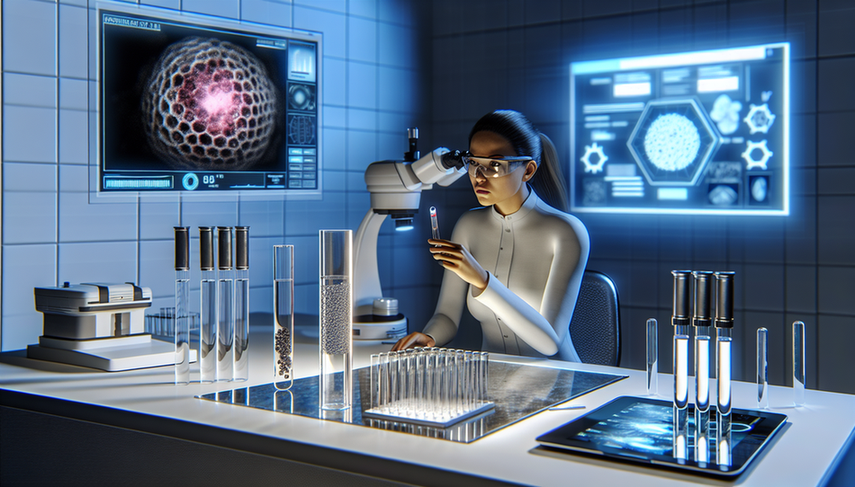Medical Nanotechnology and Nanosensors: Early Cancer Detection Using Tumor Markers

Medical nanotechnology has emerged as a revolutionary tool in the field of oncology, offering new possibilities for early cancer detection through the use of nanosensors. These advanced devices enable the identification of tumor markers with unprecedented sensitivity and specificity, which could transform cancer diagnosis and treatment.
Advances in Early Cancer Detection through Nanotechnology
The integration of nanotechnology in medicine has facilitated the development of nanosensors capable of detecting specific tumor biomarkers, circulating tumor cells, and extracellular vesicles released by tumors. These advancements promise to detect cancer at much earlier stages, thereby improving long-term survival rates for patients. Additionally, monitoring the concentration of anticancer drugs using these devices allows for personalized dosing, optimizing therapeutic outcomes and enhancing patient quality of life.
Nanotechnology-based approaches have significantly improved the sensitivity and specificity of tumor marker detection techniques. The use of magnetic and metallic nanoparticles, carbon nanotubes, quantum dots, and graphene-based sensors has proven effective in detecting markers such as prostate-specific antigen (PSA), carcinoembryonic antigen (CEA), and human epidermal growth factor receptor 2 (HER2), among others.
Liquid biopsy represents another significant advancement, allowing for non-invasive and dynamic analysis of molecular or cellular biomarkers. This technique, enhanced by nanotechnology, offers immense potential for diagnosis, prognosis, and monitoring disease progression, as well as for identifying therapeutic targets.
Conclusions
The application of medical nanotechnology in early cancer detection using nanosensors represents a significant advancement in modern oncology. The ability to detect tumor markers with high precision and at early stages of cancer development could revolutionize current approaches to cancer diagnosis and treatment. As these technologies continue to evolve, it is essential for medical professionals to stay informed about these developments to integrate these tools into clinical practice and improve patient outcomes.
Referencias
- [1] Nanosensors for early cancer detection and for therapeutic drug monitoring.
- [2] Nanotechnology-based approaches for effective detection of tumor markers: A comprehensive state-of-the-art review.
- [3] Emerging Nanotechnologies for Liquid Biopsy: The Detection of Circulating Tumor Cells and Extracellular Vesicles.
Created 24/1/2025
